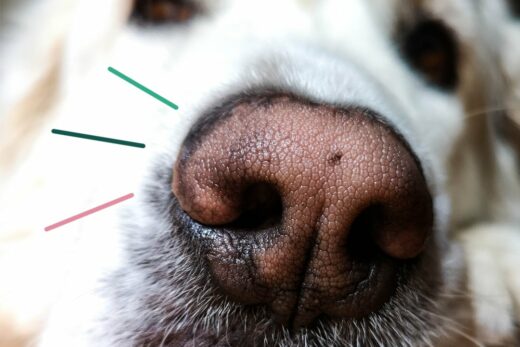Coronavirus news. It’s everywhere. As a loving pet parent, you probably want to know what this mean for your furry buddy. If we humans are susceptible – can dogs get coronavirus too? What about cats? Don’t worry. We’ll answer your questions about dogs, cats, and the coronavirus below – so you can enjoy peace of mind with your furry friend. While we’re at it, check out our tips for boosting your dog’s immune system.
So, can dogs get coronavirus?
Yes – despite early reports, it’s now clear that both dogs and cats can be infected by Covid-19. There have been several cases documented in the United States and elsewhere. However, it doesn’t seem to happen often. And the good news, according to the CDC, is that so far, there is no known case of a dog or cat passing away due to coronavirus.
Symptoms of Covid-19 in dogs
It can be hard to spot Covid-19 in dogs due to its symptoms being quite similar to the flu, as well as the fact that dogs and cats may experience a symptom-free version. However some symptoms experienced by a dog or cat with the coronavirus may be:
- high fever
- coughing
- sneezing
- runny nose
- eye discharge
- shortness of breath
- lethargy
- vomiting
- diarrhea
If you suspect your dog might have Covid-19, it’s best to first call your vet for recommendations. While there are currently no special treatments for coronavirus in our four-legged friends, you can read more about what to do if your pet has coronavirus here.
🛈 Did you know? Researchers in Dortmund are currently working on an electronic “Dog Nose” that can sniff out Covid-19. It’s a device with sensitive, dog-inspired sensors that can tell from your breath if you might have the virus.
Can dogs pass on coronavirus to humans?
In general, it is possible for some coronaviruses to be transmitted from infected animals to humans – the outbreak of Covid-19 likely originated in bats after all. However coronavirus is most likely to be spread human to human, when germs are passed on via droplets while coughing, sneezing or speaking at a close distance.
According to the World Health Organization, there is some evidence to suggest that minks may have been able to pass on the coronavirus to humans.
However, the risk of animals passing on the virus to humans is now considered to be very low. In theory, it’s not impossible – but is is unlikely that your dog will pass on coronavirus to you.
Still – the WHO still recommends washing hands with soap and water after contact with house pets, just to be on the safe side. That can also protect you from nasty bacteria like salmonella or e-coli.
We know it’s tough, but this means it’s best to resist the urge to cuddle and comfort your furry friend in case they’re sick.
Now that we’ve answered the question, can dogs get coronavirus, you may be wondering what you need to do in case your pet falls ill.
Do I need to tell someone if my dog or cat has Covid-19?
Your vet will be able to provide you with information in case your pet has coronavirus. But do you need to report your dog’s case of coronavirus to the authorities? The discussion so far has, understandably, been focused on humans and coronavirus. However, there’s talk in Germany about whether to make it mandatory to report a positive test. That would mean a veterinarian would have to notify the relevant authorities. The belief is that this would give experts a clearer picture of infection risk among animals.
For now, no other country seems to be trying out a similar approach – but it’s something we’re keeping our eye on.





